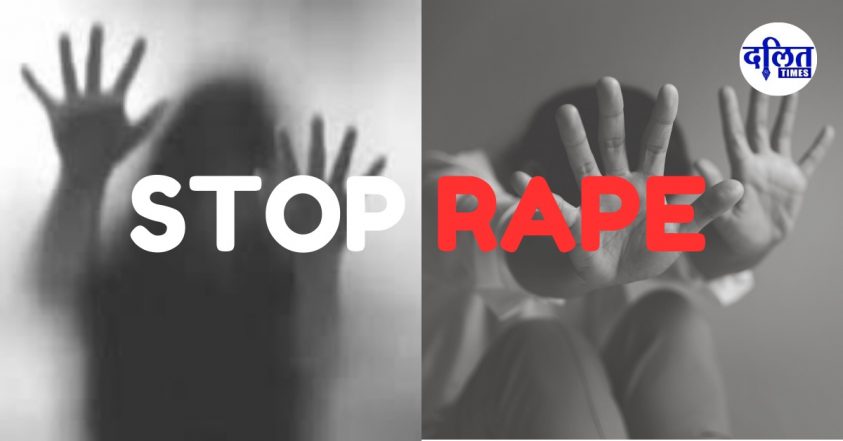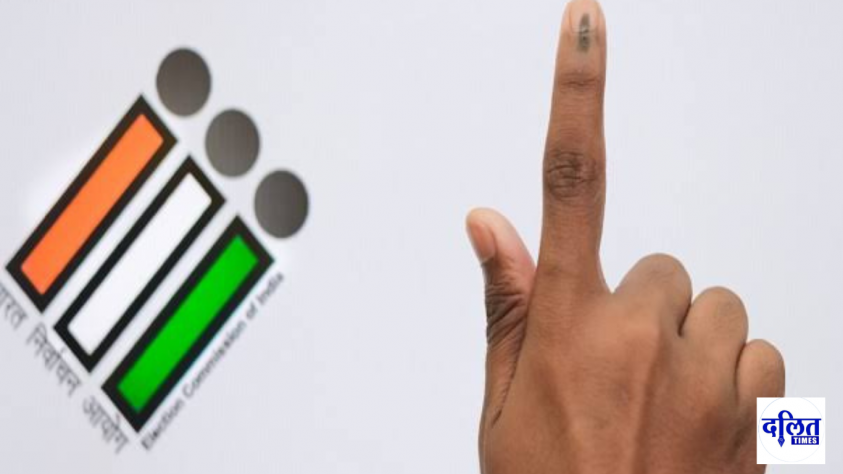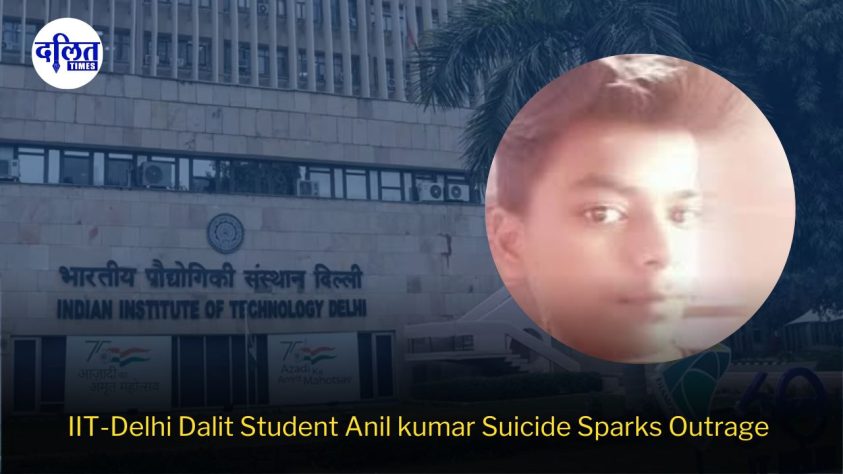Vincy’s (Vincy Aloshias) recent revelations are not a footnote in the annals of Malayalam cinema it is a mirror held up to an industry that has for long camouflaged its decay with glamour. At the center of her statement are allegations of drug use and sexual exploitation within the film fraternity and allegations that are both criminal in nature and symptomatic of systemic rot.
What began as a testimony of courage was soon engulfed by selective outrage. Vinci’s accusations were quickly reduced to gossip fodder. She was blamed, doubted, discredited not only by strangers, but also by familiar faces within the industry. Public figures like Mala Parvathy and Bhagyalakshmi, instead of extending solidarity, criticized the complainant, exposing the deeply entrenched victim-blaming culture that continues to define our responses to women who speak out. Malaparvathy tried to normalize the inhuman behavior of the accused and suggest to handle it tacticly however Bhaggyalakshmi indirectly blame Vincy and that shows she stood with dominant male part not with victims. Her earlier statements also similar and she ultimately tryin to save the accused persons in filim industry. She also blamed WCC in the time of report of Hema commission. However she trying to express that she stand with victim that is hypocrisy .
Also Read : The Demand for a Caste Census in Telangana: A Social and Political Imperative
Actress Maala Parvathy suggested that “ women should learn how to manage inappropriate behavior at work place “. The statement of Mala Parvathy was very much criticized by different corners and even Bhagyalakshmi also criticized her statements that normalize the bad practice in the film industry. However She also comment and trigger the complainant for her inconsistent stand in her previous complaint. Senior Artists Maala Parvathy and Bhagya Lakshmi are the representatives of Patriarchy and Opportunists directly and indirectly support the culprits.
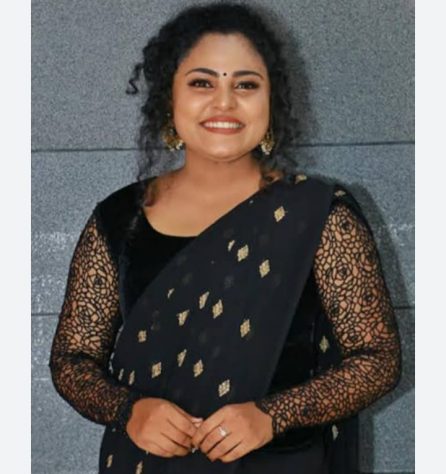
But Vincy’s testimony cannot be dismissed as a ‘slip of the tongue.’ It is a legal and social document that demands a response—not just from the film industry, but from the justice system.
Just after Vincy filed the complaint to monitoring committee ‘a producer and director, called press conference and told the media that nothing happened in the set and who gave authority to those persons to negate the complaint regarding drug usage in the set and connected violence against an actress who face traumatic atmosphere in her workplace .
Breach of Confidentiality: A Crime in Itself
One of Vincy’s most damning allegations was against Kerala Film Chamber of commerce, Saji Nandiyatt General Secretary, she alleged to violate the confidentiality of her complaint. If true, this act constitutes a breach of Section 72 of BNS, which prohibits the disclosure of the identity of a victim in certain cases without due legal process. The act of divulging sensitive information for personal or political gain is not merely unethical—it is criminal. Vinci’s plea for anonymity was not a request; it was a legal right. I mentioned the name because both the name was revealed and both of them speak in front of media.
Drug Abuse in Cinema: Not Just an Image Problem
Drug abuse is not a ‘private matter’ when it directly contributes to coercion, exploitation, and systemic harm. The Narcotic Drugs and Psychotropic Substances Act, 1985 (NDPS Act), strictly criminalizes not just consumption, but also enabling and abetting drug usage. If young women are being lured into substance abuse and then exploited under its influence, the offence is compounded—violating not only the NDPS Act but also provisions of the Protection of Women from Sexual Harassment at Workplace (POSH) Act, 2013.
The Illusion of Reform
Time and again, the Malayalam film industry has claimed to be reforming and setting up internal committees, gender cells, and artist forums. But these have largely served as image management tools. Vinci’s case reveals the futility of these mechanisms when the industry closes ranks around perpetrators and marginalizes truth-tellers.
What we need is not symbolic compliance, but enforceable accountability:
- Immediate legal investigation into the allegations under the NDPS Act and BNS
- Independent grievance redressal bodies outside of industry control
- Whistleblower protection frameworks tailored to creative industries
- Safe and confidential complaint mechanisms led by credible, autonomous experts
Also Read :Who Owns the State? Karnataka’s Bureaucracy and the Spectacle of Dominant Caste Power
Beyond Vinci: A System That Enables Silence
It’s important to recognize Vinci not merely as a victim, but as a whistleblower. Her voice—shaking but steady—represents countless others who were never allowed to speak. Drug mafias do not operate in isolation. They thrive in cultures where silence is enforced through fear, dependency, or character assassination.
The use of drugs as a tool to manipulate, entrap, and exploit women in the film industry is not a new story—it’s a buried one. Vinci is unearthing it at great personal cost. She deserves legal protection, not public ridicule. She deserves solidarity, not suspicion.
Standing with Vinci – Producer’s Stand Against Drug Abuse in Cinema
“Even before the Film Chamber received the complaint, Shine Tom Chacko’s name had already come out publicly. Other channels had released the complaint. It was in this context, while speaking as a representative of the Film Chamber, that I happened to mention Shine Tom Chacko’s name.
Vincy later understood this and withdrew her accusation.
Women must feel safe in their workplaces. There must be an environment on film shooting sets that allows them to work in peace. There should be no kind of harassment toward them.
Drug use is wrong, no matter who does it. Society does not accept it — and neither do we. A peaceful atmosphere is what is needed in filming locations, and creating such an environment is the responsibility of everyone involved in cinema.
The encroachment of drugs is a serious issue. We must all stand united. The youth who are getting destroyed must be saved — even if temporarily, they must be kept aside.
Drug use is not confined to the film industry; it is widespread in all areas of society. We, along with the police and excise departments, must stand together. We must work together to combat these violations.
A drug-free India, a drug-free Kerala — that is our dream.” –
Saji Nanthiyatt, General Secretary, Kerala Film Chamber of Commerce.
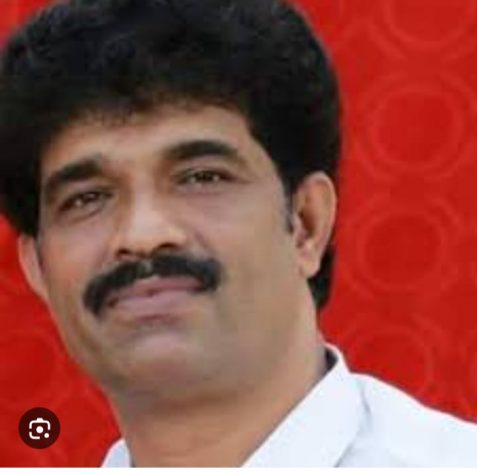
“Many within the film industry genuinely want to speak out against drug use in cinema. But the harsh reality is that doing so could negatively impact their career in cinema. That’s why most refrain from expressing their opinions freely. Once someone is cornered, continuing a career in the film industry becomes impossible to express his or her opinion freely .
Also Read : Beyond Caste: The Everyday Untouchability of Delivery Workers
Since the early days of cinema, producers have rarely taken action against those accused who close to them. They need shooting dates, and the accused are often friends of the producers. It’s not just the stars who use drugs but technicians etc also using the same. And most of the people on the set are aware of what’s going on. In the current case, the accused is said to have acted and spoken under the influence of the drug and he himself forget everything that not reduce the gravity of the offence he committed.
“Vincy “didn’t randomly name someone — she knew who else was present on that set but didn’t mention anyone else she didn’t trigger any one other than Shine Tom chacko.
. What’s the point of forming an “investigation commission” within the industry?
Investigating and taken action against an illegal activity is not the responsibility of people without the proper authority. There are public systems for that — it’s the police, the excise department, and the law enforcement agencies who must act. Even within our workplace, we can only control things to a certain extent — we can’t follow people after the shooting set.
Those facing such serious allegations should be removed from active participation. It’s the responsibility of producers and the other responsible persons that kind of integrity.
All this information is coming from credible sources. Are the people inside the film industry really equipped to conduct such investigations? Trying to “cover it up” is just an act. Saying that the issue will be “resolved internally” is actually a challenge to the rule of law. It’s not people like Unnikrishnan or Saji Nandyatt who should be investigating this. Who gave them the authority to handle drug cases?
Shine Tom Chacko’s name came out publicly because he is not a superstar. If the accused were a superstar, the industry would have adopted a defensive position — isn’t that obvious?. Drugs are accessible from various sources. But when they are used on film sets, the industry must take responsibility and exercise vigilance. Drug use isn’t limited to cinema — only a small percentage of users are actually from the film industry.
Let investigations focus on the supply chain. Find out where the majority of drugs are being sold and distributed.
I stand firmly with Vincy, who had the courage to speak out based on her own experience. I, along with many other independent producers, maintain a strong stance against drug abuse. I’m not part of any organization. Everyone must take a righteous stand on this issue.
Those with the courage to speak out must step forward. I fully support Vincy on this matter for her courageous stand to reveal this issue and her step to fight against drugs”
“I have directed three films and produced ten, yet the film producers association has kept me out just because I didn’t pay a annual fee of 500 rupees.
To say that a producer who is capable of making a film and ready to bear losses worth crores couldn’t pay 500 rupees — that’s nothing but the work of vested interests.
Despite repeatedly requesting that the annual fee be made five years annual fee in advance to make it manageable, the leadership refused. I suggested to fix an option to clear arrears that were rejected by the Film Producers association in Kerala. Instead of allowing to clear arrear they proposed a new membership with a huge membership fee.
This shows that those at the top of the organization only include people who align with their personal interests.
The producer’s organization has always taken a stance that protects only those with power and position. That is why I have absolutely no trust in them.”
— Jagadeesh Chandran, Kichu Filims, Independent Malayalam Film Producer
Also Read : April 14 in New York City: The World Bows to Babasaheb
WCC demand proper mechanism that guarantee dignity of women behind the Film.
“WCC filed a case demand that IC (Internal Committees) be made mandatory in the Malayalam film industry and the final stage of the case women commission implead. The verdict of the court insist to introduce IC in film industry and a monitoring committee chaired by Film chamber of Commerce and that also represented by all unions in the said field. However, there still seems to be an attitude that this is not applicable on film sets even after Hema Committee report.
Producers’ Association that is Film chamber of commerce having responsibility to chair the monitoring committee because they considered as employer. It is important that the Film Chamber of Commerce has no power to monitor Internal Committee in film industry however the monitoring committee having the power to monitor IC and that committee chaired by Film chamber and three members of WCC also part of the existing monitoring committee. The complainant in this case register complaint to the Monitoring Committee she is not even member of “AMMA”. There are very less number of complaints to the monitoring committee that shows the ineffectiveness of the committee not about the peaceful atmosphere within the industry. Labour department is the responsible authority to maintain system for IC and because WCC proposed suggestions in a meeting with Commissioner Vasuki and Revathy member of WCC proposed some suggestions for effective functioning of IC that was already in force in kolywood and some other film industries. She specifically suggests google meet and scope of exploring other social media platforms effectively.
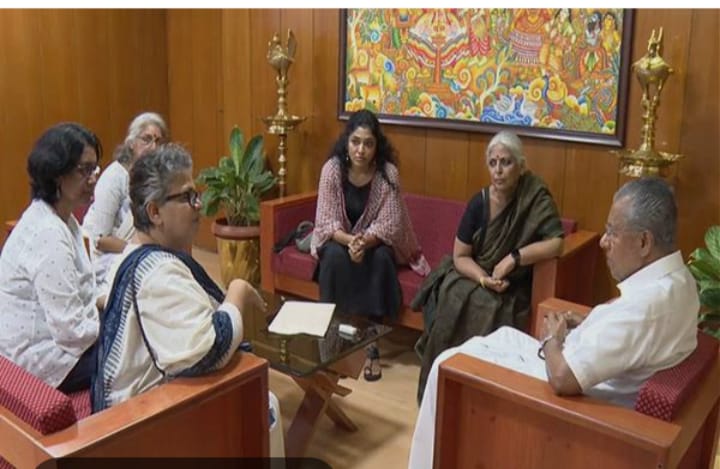
WCC strongly proposed effective functioning of IC and Monitoring committee instead of others. Registration of IC in labour departments portal is mandatory however there is no data available regarding such committees and the details of the complaints and actions against the complaints yet. It is mandatory a dignified and safe workplace for everyone behind a film. We strongly demanding to implement Hema committee suggestions and court order to constitute IC and take proper effective steps to increase the effectiveness of monitoring committee. ”
— WCC
“What we need is a systemic change, not to reduce the issue to an isolated individual.”- Deedi
“ Syetemic change is the only remedy instead of targeting a particular person. According to what Vincy revealed that there wasn’t an Internal Committee (IC) available initially to file a complaint.
In a workplace that is not women-friendly, where is one supposed to raise such complaints regarding use of drugs and connected violence and inappropriate behavior that issue should be collectively addressed than focus on a particular individual. The system needs to change. Media discussions focusing solely on one individual are not on the right way. Even the guidelines that came after the Hema Committee should at least be followed. We cannot stand anywhere other than with Vincy for a comprehensive change and for peaceful and dignified work space in the film Industry.”
— Deedi, Feminist and founder Member of WCC.
De-addiction must not remain a choice- Indu Menon
“Drug usage is a banned act in India. It leads to serious health issues as well as widespread social, physical, and psychological crises. This is especially true in the case of chemical drugs. The approach we must adopt is clear: to eliminate the use of such substances at any cost.
Those addicted to chemical substances should be transferred to de-addiction centres based solely on medical tests, without the delay of legal formalities. Until they are fully rehabilitated, they must not be granted bail, parole, or any form of release.
These cases must be treated through the lens of mental health, with therapy and healing as the central response. What we need is not a jail in disguise, but a sanctuary of recovery—an exclusive de-addiction centre offering complete support: medical assistance, psychiatric care, psychological guidance, and continued vocational training to rebuild life from ruins. De-addiction must not remain a choice. It must be made a legal mandate.
Also Read : Dalit Girl Forced to Write Exam Outside Classroom During Her Period
As seen in other countries, the question of legalizing certain minor drugs—like marijuana—can be considered with caution. Regulated by the state in defined quantities, like rationing, this move demands thoughtful, comprehensive policy planning.

But in workplaces and public spaces, when a woman dares to speak up, her ordeal is often met with disbelief and neglect. The path from office desk to courtroom is long, weary, and lonely. What begins as a cry for justice becomes a daily struggle—an unending crisis of survival.”— Indu Menon, Poet and Novelist, Core Committee Member, Group Against Sexual Violence
We cant afford to wait for more voices
“It’s disheartening that even in 2025, as someone practicing before the Supreme Court , I still see how power structures, especially in industries like cinema, often praised for their cultural flair and modern ideals, manage to suppress victim’s voice, particularly women, with alarming ease.
These aren’t just well-meaning legal texts, they are power full tools designed to protect people. But laws are only as strong as their enforcement, and that’s where we are falling. The film industry, with all its wealth and reach, too often uses its influence to hush up allegations. Victims are pressured into silence or pushed to withdraw complaints. The imbalance of power here is blatant and dangerous. That’s why the State must step in, not just reactively but proactively, using suo motupowers, independent investigation, and stricter implementation of the law.
We cant afford to wait for more voices like Vincy to come forward. What we need now nothing short of a systemic overhaul- rigorous checks, active monitoring, and real accountability. Because this fight isn’t just about one case or one victim. It’s about defending the idea of justice itself in system that’s becoming alarmingly skewed against those who need it most.” Vineeth.S, Advocate, Supreme Court of India
Silence is a crime its not amount to neutral
I approached many persons for their comment in this issue including directors however large number of them not ready to give their opinion. Most of them are focus on their opportunity and career. We are concern about the drug use and connected violence in cinema set and connected work places. However some of them curious about the drug use in their private space. Vincy also raise the issue of drug use and violence in work place in Molywood. Even Vincy compromise to this issue for the film though the issue raised by her is crucial. The crew and other persons behind films industry should stand with the issue raised by her for the future of film. Suppressing an illegal act also amount to crime. This is our duty to vanish illegal drug usage and connected violence in the work place with the help of legal system.
The Role of the State
The Kerala government cannot wash its hands of this matter under the pretext of ‘industry autonomy.’ The State Women’s Commission, Excise Department, and Kerala Police have statutory and constitutional responsibility to take suo motu cognizance of Vincy’s allegations. A formal probe, independent of industry interference, is essential to uphold constitutional morality and the rule of law.
The film industry is not above the law. Just because a crime happens under studio lights does not make it less real. The law must pierce through the curtains of stardom, and justice must walk past red carpets and into reality.
By Bindu Ammini
April 25, 2025

